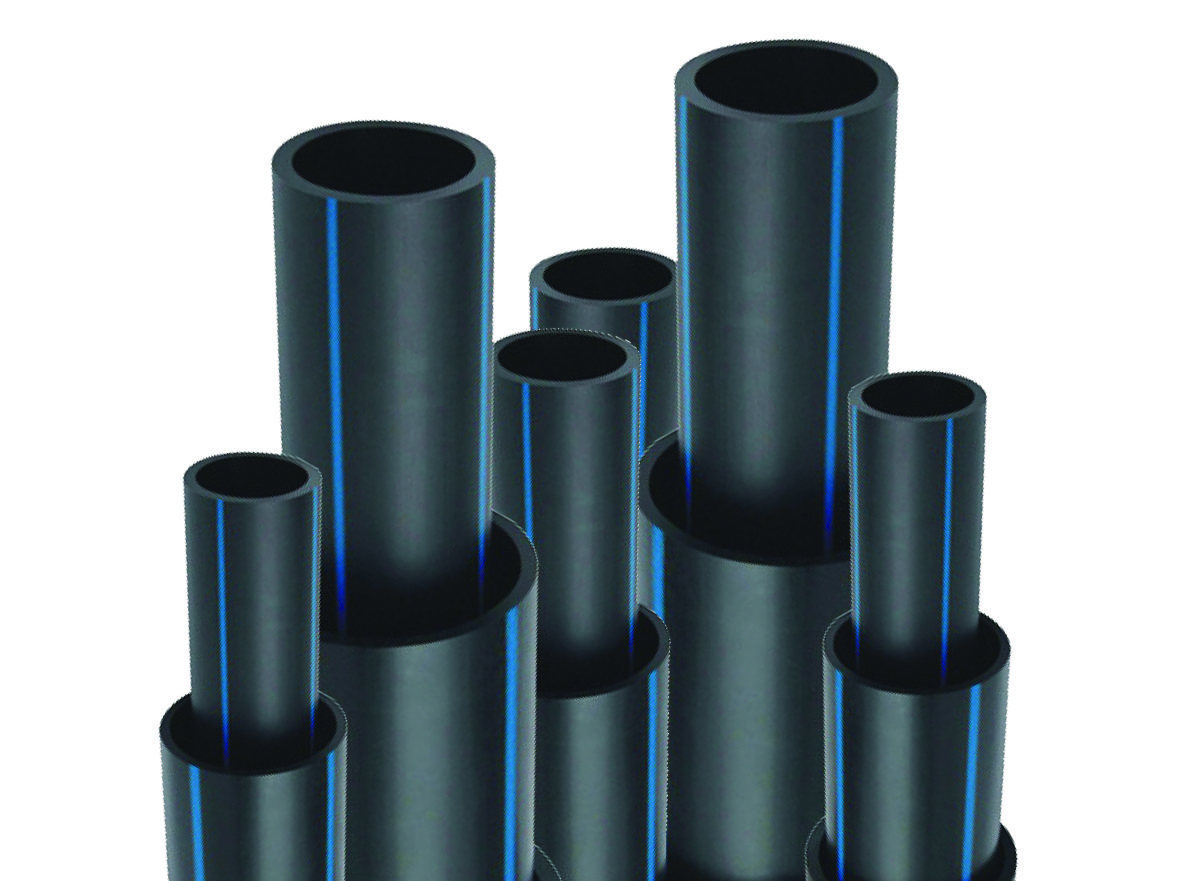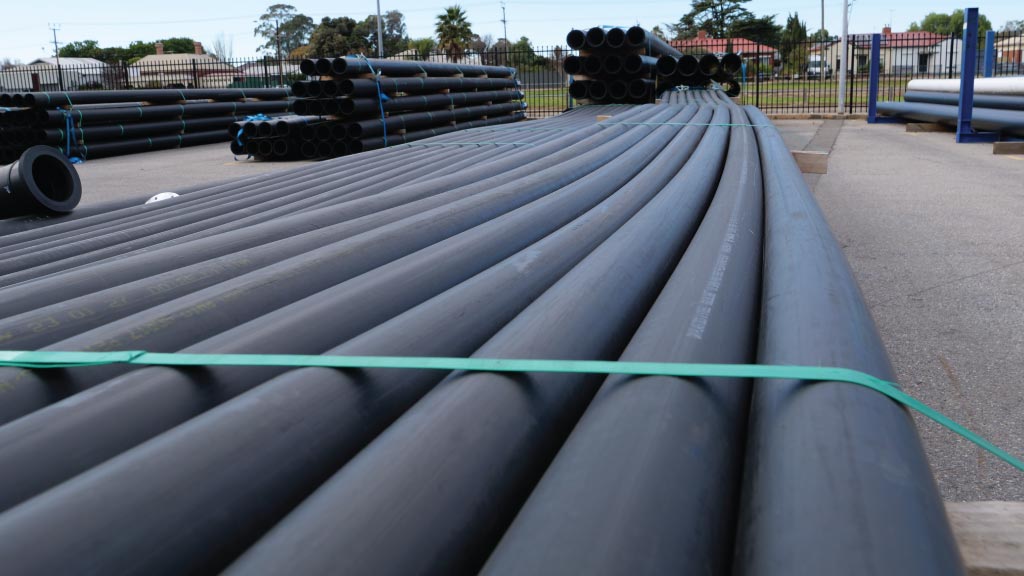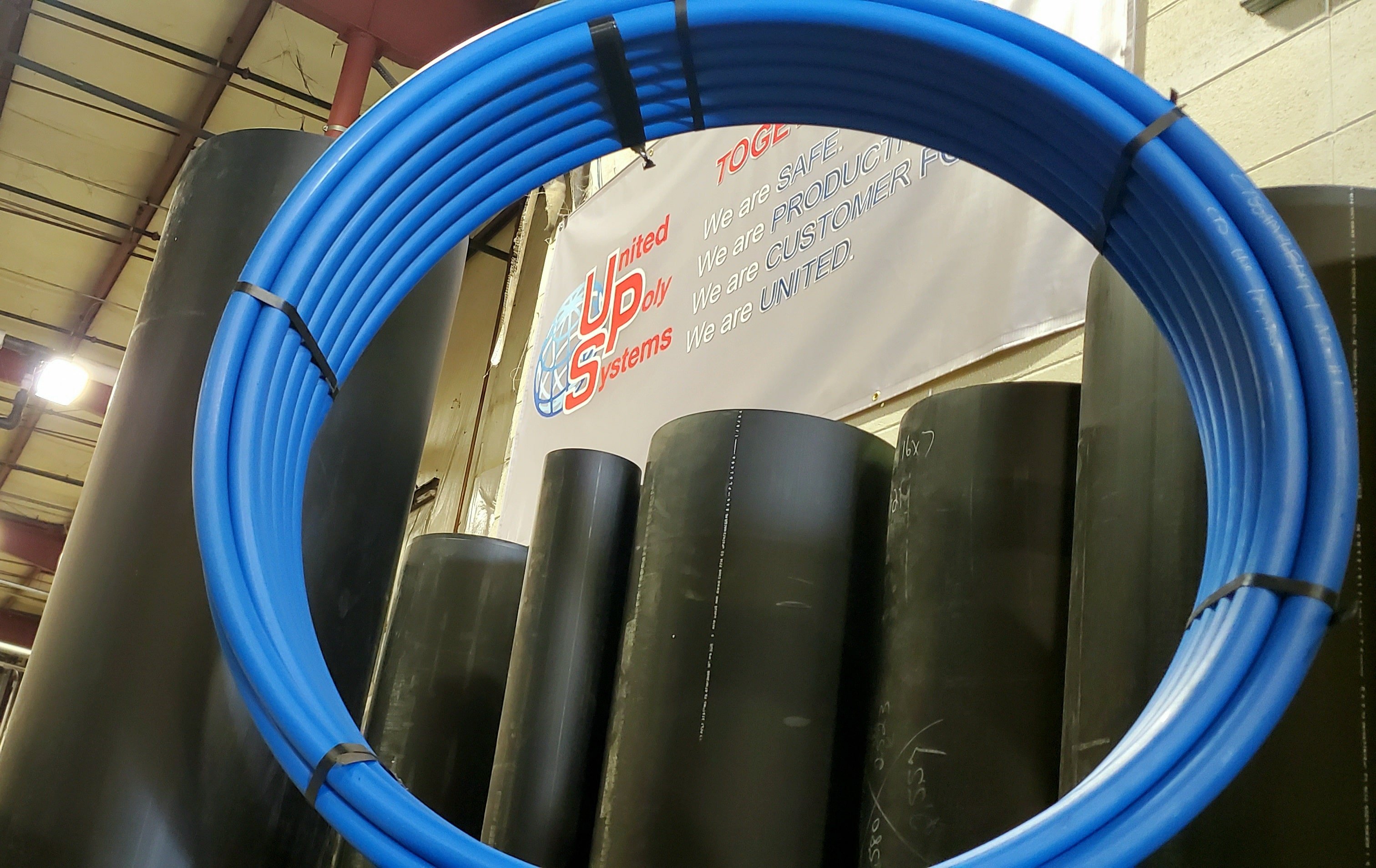Exploring the Leading Pipeline Manufacturers: Quality, Integrity, and Advancement
The pipeline manufacturing sector stands at the crossway of reliability, development, and quality, driven by leading firms such as Tenaris and Vallourec. These suppliers are not only dedicated to generating high-performance products however are likewise introducing sustainable techniques that resolve modern-day ecological issues (Pipeline Manufacturer). As we examine the standards that define excellence in pipeline options, it comes to be apparent that the landscape is quickly developing. What certain advancements are arising, and how are these advancements forming the future of pipeline infrastructure? The responses may redefine industry criteria in manner ins which are not yet totally comprehended
Leading Manufacturers Overview
In the domain of pipeline manufacturing, numerous crucial gamers emerge as leaders, each contributing considerably to the market's landscape. Firms such as Tenaris, Vallourec, and JFE Steel have actually established themselves as frontrunners by continually delivering high-quality items that fulfill strict industry standards. Tenaris, renowned for its cutting-edge options, focuses on seamless and welded pipelines, catering mainly to the oil and gas market. Vallourec, a French international, concentrates on the manufacturing of costs tubular options, emphasizing sustainability and progressed technology in its manufacturing processes.
JFE Steel, a significant Japanese manufacturer, is recognized for its extensive range of steel pipelines, specifically those made use of in power and infrastructure jobs. Their commitment to r & d has enabled them to create high-performance materials that withstand extreme environmental conditions. Furthermore, companies like united state Steel and National Oilwell Varco have broadened their market existence by expanding their item offerings and boosting operational effectiveness.
These leading manufacturers not only control the market yet likewise drive development within the sector, establishing standards for quality and dependability that various other gamers aim to achieve. Their contributions are vital for meeting the enhancing demand for reliable and long lasting pipeline solutions worldwide.
Criteria for Top Quality Analysis
Quality evaluation in pipeline manufacturing depends upon 2 vital requirements: material durability requirements and producing process effectiveness. Making sure that materials fulfill rigorous toughness standards is vital for the longevity and reliability of pipelines. Additionally, maximizing the manufacturing process can improve efficiency while maintaining premium quality, eventually affecting total performance and safety.
Material Sturdiness Specifications
Guaranteeing the long life and reliability of pipeline products is important for preserving framework honesty and operational efficiency. Product longevity requirements play an important duty in evaluating the top quality of pipelines, determining the efficiency and life expectancy of the products utilized in building and construction. Manufacturers should stick to a variety of strenuous criteria, consisting of those established by companies such as ASTM International and the American Oil Institute (API)
These criteria examine different factors, including corrosion resistance, tensile stamina, and exhaustion performance. As an example, pipes made use of in harsh settings require materials that can stand up to chemical degradation, while those based on high-pressure conditions should show outstanding tensile stamina.
Furthermore, factors such as temperature fluctuations and ecological problems need to be considered, as these can considerably affect material actions with time. Manufacturers usually make use of advanced testing methodologies, including increased aging tests, to simulate lasting wear and guarantee that products exceed or fulfill industry benchmarks.
Manufacturing Process Effectiveness
Manufacturers' capability to optimize manufacturing process efficiency is crucial for creating top quality pipelines that fulfill rigid industry standards. Effectiveness in manufacturing directly influences expense administration, manufacturing timelines, and total item honesty. To accomplish this, leading pipeline producers apply sophisticated techniques such as lean manufacturing, automation, and real-time data analytics.
Lean producing concepts are important in decreasing waste and maximizing resource application. By enhancing procedures and removing redundancies, suppliers can enhance efficiency while making sure constant high quality. Automation technologies, consisting of robotics and computer system mathematical control (CNC) makers, play a critical role in enhancing accuracy and minimizing human error, therefore boosting the dependability of the final item.
Additionally, using real-time data analytics permits producers to monitor manufacturing processes constantly, allowing them to identify traffic jams and make timely changes. This proactive technique not only improves efficiency however additionally sustains quality control protocols by making certain compliance with regulative criteria.
Integrity in Pipeline Solutions
Dependability in pipeline solutions is paramount, as it directly influences the security and efficiency of liquid transport systems. Key aspects include the sturdiness of materials made use of, adherence to strenuous testing and certification requirements, and the incorporation of cutting-edge material options that enhance efficiency. Understanding these aspects is vital for producers aiming to provide reputable pipeline infrastructure.
Significance of Toughness
Achieving resilience in pipeline remedies is essential, as it straight influences the lasting efficiency and safety and security of infrastructure. Durable pipelines are necessary for minimizing upkeep prices and decreasing the chance of devastating failings. This reliability is especially important in industries such as oil and gas, water supply, and wastewater monitoring, where the consequences of pipeline failing can be severe, both economically and environmentally.
The products and making processes utilized by pipeline makers play a significant role in identifying the durability of the end product. Making use of high-grade raw products, advanced modern technologies, and cutting-edge style principles assures that pipes can endure numerous stressors, including pressure changes, temperature variations, and harsh atmospheres.
In addition, the sturdiness of pipes is very closely linked to their ability to resist outside aspects such as soil activity, seismic task, and chemical exposures. Efficient deterioration defense techniques, such as coverings and cathodic protection, further boost the longevity of pipes, guarding them versus deterioration in time.
Purchasing long lasting pipeline solutions eventually converts to enhanced functional performance, lowered downtime, and boosted security, affirming the crucial significance of longevity in modern-day pipeline manufacturing.
Checking and Accreditation Standards
In the domain name of pipeline options, rigorous testing and qualification requirements are crucial to guarantee the dependability and safety of facilities. These criteria act as benchmarks for assessing the efficiency and durability of pipeline materials and systems, verifying they satisfy certain regulative and market demands.
Evaluating procedures usually encompass various methodologies, including stress testing, hydrostatic examinations, and non-destructive screening methods. These evaluations are crucial for determining possible weaknesses or issues in the materials prior to they are deployed in real-world applications. In addition, certification by recognized companies assurances that producers follow developed standards, which fosters depend on amongst stakeholders, including designers, end-users, and contractors.
Several top pipeline manufacturers participate in constant surveillance and enhancement of their screening methods to adapt to developing sector requirements and technological advancements. Compliance with requirements such as ASTM, ASME, and ISO not just improves product integrity but additionally reduces the danger of ecological occurrences connected with pipeline failings.
Cutting-edge Product Solutions
The development of innovative material solutions has actually transformed the landscape of pipeline manufacturing, improving both performance and longevity. Advanced materials such as high-density polyethylene (HDPE), cross-linked polyethylene (PEX), and composite products have become game-changers, providing premium resistance to rust, temperature level fluctuations, and stress variants. These products not only expand the lifespan of pipelines however additionally lower maintenance expenses, ensuring trusted long-term performance.
Furthermore, manufacturers are significantly taking on wise products that include sensing units for real-time tracking. This modern technology permits positive maintenance, substantially enhancing reliability by detecting leaks or structural weak points before they intensify right into essential failings. The combination of nanotechnology has actually likewise brought about the advancement of coatings that boost the toughness of pipes against abrasion and chemical exposure.
Sustainability is another vital focus, with producers checking out bio-based compounds and recyclable products that lessen ecological effect. As governing standards proceed to develop, the focus on innovative product solutions becomes extremely important in meeting rigorous safety and ecological requirements. Eventually, these developments not just enhance the integrity of pipeline systems but likewise add to the total effectiveness and sustainability of energy transport frameworks.
Advancements in Pipeline Innovation
Developments in pipeline modern technology are changing the sector by improving performance, safety and security, and environmental sustainability. Current improvements focus on smart pipeline systems that make use of sensors and IoT modern technology to check conditions in actual time, allowing proactive maintenance and lowering the threat of failures. These systems can spot leakages, stress modifications, and other anomalies, enabling for fast action and lessening ecological effect.
Furthermore, the growth of innovative materials, such as composite and corrosion-resistant alloys, substantially expands the life-span and integrity of pipes. HDPE Pipe Supplier (American Plastics LLC HDPE Pipeline Manufacturer). These products decrease upkeep prices and boost performance in severe settings, making them suitable for oil, gas, and water transportation
Moreover, automation and robotics are playing a vital function in pipeline construction and inspection. Drones and robot gadgets promote surveys and analyses of hard-to-reach locations, making certain comprehensive examinations without jeopardizing safety.
In addition, cutting-edge styles, such as modular pipeline systems, permit better flexibility in installment and adjustment, satisfying the dynamic needs of the power industry. Together, these technical innovations not only improve operational performance yet likewise add to a more lasting and resilient pipeline framework, paving the way for a greener future.
Study of Success
Across various markets, effective implementations of innovative pipeline modern technologies demonstrate significant improvements in operational performance and safety. One significant instance is the deployment of wise pipeline tracking systems in the oil and gas sector, where real-time data analytics have minimized leakage detection times by over 50%. This not only lessens ecological threats however likewise improves the general integrity of pipeline framework.

Additionally, a major manufacturer implemented robot examination modern technologies in its pipeline upkeep operations, causing a 40% renovation in evaluation efficiency. This approach has streamlined upkeep routines and substantially reduced downtime.
These study highlight exactly how prominent pipeline manufacturers are leveraging advanced modern technologies to promote reliability and operational excellence, eventually establishing new criteria for the sector. As these successes remain to unravel, they pave the method for additional advancements in pipeline manufacturing and management.

Ecological Sustainability Practices
Often, pipeline manufacturers are prioritizing environmental sustainability methods to mitigate their eco-friendly impact and improve the long life of their items. This commitment is shown in different campaigns focused on reducing waste, preserving power, and making use of lasting products throughout the manufacturing procedure.

Many suppliers are adopting innovative modern technologies that lessen discharges and energy usage. The integration of automated systems and energy-efficient equipment aids enhance manufacturing while decreasing reliance on fossil fuels. Additionally, firms are increasingly turning to eco-friendly materials, such as recycled steels and bioplastics, which not just lower the ecological effect but additionally advertise a round economy.
Pipeline suppliers are applying strenuous lifecycle assessments to review the ecological ramifications of their items from creation to disposal. This method enables them to recognize possibilities for renovation and foster liable sourcing and waste management techniques.
Collaboration with ecological companies even more improves these efforts, as makers seek to align their procedures with worldwide sustainability goals. Inevitably, these ecological sustainability methods not only contribute to a much healthier useful link planet yet likewise placement producers as liable leaders in the sector, attracting ecologically mindful stakeholders and consumers alike.
Future Patterns in Pipeline Manufacturing
As the need for more reliable and sustainable framework grows, pipeline manufacturing is poised for significant innovations that will improve the sector. Trick trends anticipated in the coming years include the combination of sophisticated products, such as corrosion-resistant and composite alloys, which boost longevity while minimizing environmental influence. Manufacturers are also anticipated to take on cutting-edge production strategies, like additive manufacturing and automation, to improve processes, reduce waste, and lower costs.
The rise of smart pipeline innovations, incorporating sensors and IoT devices, will enable real-time monitoring and predictive maintenance, thus enhancing safety and functional effectiveness. This electronic makeover will not just maximize resource monitoring however likewise assist in compliance with strict ecological guidelines.
Sustainability will stay a central emphasis, driving manufacturers to purchase eco-friendly practices, consisting of energy-efficient manufacturing techniques and recycling efforts. As the worldwide emphasis on climate change magnifies, pipeline manufacturers will certainly require to adapt by developing remedies that satisfy both economic and environmental demands.
Regularly Asked Inquiries

What Industries Primarily Utilize Pipeline Products From These Manufacturers?
Pipeline items are mainly made use of in industries such as oil and gas, wastewater and water monitoring, chemical building, mining, and handling. These fields depend on effective, long lasting, and safe transportation of materials and liquids.
Just How Do Manufacturers Guarantee Conformity With International Pipeline Requirements?
Manufacturers assure conformity with global pipeline requirements by applying rigorous high quality control processes, performing normal examinations, sticking to established regulative frameworks, and buying worker training to promote understanding and understanding of security and top quality requirements.
What Is the Average Life Expectancy of Pipelines From Leading Manufacturers?
The typical lifespan of pipelines from leading producers normally varies from 30 to 100 years, depending on product, ecological conditions, and upkeep techniques. Permian Basin HDPE Pipe Supplier. Normal examinations and adherence to sector criteria substantially affect durability and performance
Exist Certifications Details to Pipeline Production High Quality?
Yes, various qualifications exist for pipeline producing quality, consisting of ISO 9001 for high quality management systems and API criteria certain to pipelines. These qualifications ensure adherence to extensive security, efficiency, and environmental standards within the market.
How Do Manufacturers Take Care Of Pipeline Maintenance and Services?
Manufacturers normally execute a positive maintenance method that includes routine assessments, keeping an eye on systems for very early discovery of problems, and an organized fixing method. This technique guarantees pipeline honesty, reduces downtime, and boosts general operational effectiveness.
Quality analysis in pipeline manufacturing hinges on 2 crucial criteria: product resilience criteria and manufacturing procedure efficiency - HDPE Pipe Supplier. Material toughness standards play a crucial duty in assessing the top quality of pipes, dictating the performance and life expectancy of the products used in building. The products and manufacturing processes utilized by pipeline suppliers play a significant function in identifying the resilience of the last item. The ordinary lifespan of pipelines from leading makers commonly ranges from 30 to 100 years, depending on product, ecological problems, and upkeep techniques. Yes, various accreditations exist for pipeline making high quality, including ISO 9001 for high quality monitoring systems and API criteria certain to pipelines